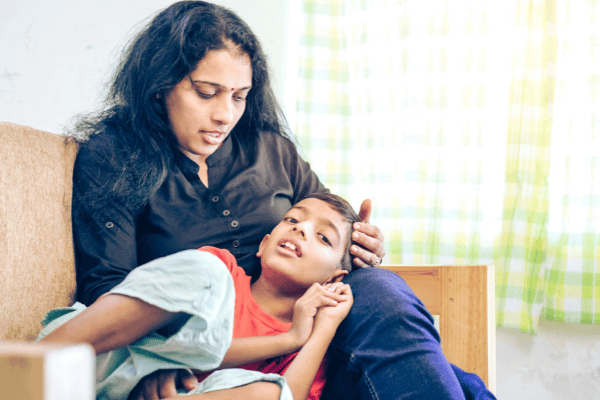*Trigger warning: anxiety, depression, suicide*
My anxiety is silent.
You wouldn’t even notice a change on the outside, but I’m honestly so stressed.
I can’t even manage simple tasks.
People call me lazy when in reality, I’m overwhelmed.
While as adults we may be able to recognise and address our anxiety, children, on the other hand, don’t have the agency to do the same. How can you identify if your child is experiencing this? How can you help your child at school? How can you help your child develop healthy coping mechanisms?
Valuable insights were shared in NSW-based non-profit Pink Sari Inc‘s recent online session which brought the issue of anxiety and depression among children to the fore. The panel invited educators, psychiatrists, and psychologists from the community who gave important information and resources on how to recognise and respond to children who may be dealing with such issues. Towards the end of the one-hour session, experts also did a Q&A session with parents who attended.
The expert panel included Principal Psychologist Poonkulali Govintharajah, Child Psychiatrist Dr Rajeev Jairam, and Saral Somaiya, the Deputy Principal of a primary school.
While the community organisation was initially dedicated to spreading awareness within the community about screening for different types of cancer, Pink Sari Inc has multiple initiatives dedicated to the well-being of South Asian communities.
You can watch the full session here:
The first speaker Saral Somaiya shared her experience as an educator and noted a rise in anxiety among primary school kids. She shed light on how parenting anxiety can often rub off on children and affect their individual and social behaviours in school. She lamented that parents tend to ‘protect’ their child and hence try to control their environments.
“I have seen parents do not let their child walk on sand or grass or mud, they’re constantly in shoes and socks, even at home,” she said, giving an example. “You need to connect with Mother Earth to get those energies. Parents don’t do that, because they are very scared of things. So those fears feed that into their child.”
Saral also revealed that she had received a suicide note written by a child that described the young student’s disdain at going to tutoring lessons and the pressure of getting into a selective school.
“Why are you in competition with other kids? We don’t understand, be in competition with yourself. We came to Australia, a land of opportunities where there is an opportunity for everybody, then why are we trying to recreate India, China, Sri Lanka?” she asked parents.
Second speaker Poonkulali Govintharajah emphasised the broader issue of the shame and stigma of having mental health issues in the South Asian community.
The principal psychologist touched upon the dreaded yet common ‘what will people say’ sentiment that has stopped many from asking for help or recognising that they are not alone.
Calling it a ripple effect she reveals that when children and young people don’t see their parents talking freely about mental health, they adopt the same shame and stigma. As a result, children may suffer in silence and may not openly talk to their own friends about their feelings.
Another barrier she pointed out, is parents minimising, dismissing, or even comparing their child’s experiences to their own experiences.
“First-generation people from a Sri Lankan background, particularly those who have witnessed the Civil War may say, ‘I’ve gone to the Civil War, and I’m okay, so what’s, what’s his problem now? Why can’t he deal with it?”
Dr Rajeev Jairam, the final speaker in the panel, has practiced child psychiatry in India as well as in Australia for 21 years. He has witnessed the journey of many families and children into therapy.
He stressed that everyone manifests the same stress and anxiety in different ways and how in the past, parents have come to him describing illnesses and asking to medicate their child.
“Children don’t have a lot of choices or control; so even though adults may be able to communicate openly with professionals, it is most important for children to be heard, and be allowed to express.”
Our genes and environment during our childhood significantly impact our emotional blueprint for the rest of our lives. In the same vein, Dr Rajeev revealed important insights about children’s emotional development, attachment styles, and resilience of children.
“We endow these children with so many experiences that it’s those experiences that are foundations of personality in later life. If those experiences and those foundations are not laid properly, then the child will be left playing catch up,” he said.
READ ALSO: Lessons from cancer – Sydney’s annual Pink Ribbon Breakfast
If you or someone you know is struggling with mental health in Australia, you can reach Beyond Blue‘s 24/7 helpline on 1300 22 4636.
If you need help or someone to listen, call Lifeline’s 24/7 helpline on 13 11 14.




